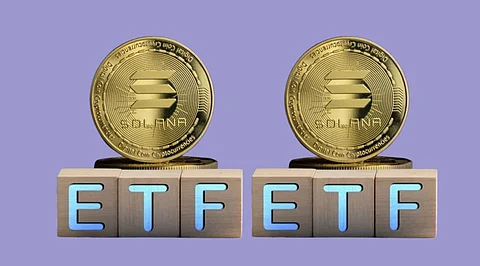

The US SEC has delayed its decision on the Solana ETF until October 2025, adding to a string of delays in crypto-related ETF approvals. Meanwhile, Kima has partnered with Mastercard to enable stablecoin top-ups for prepaid cards, enhancing the practical functionality of digital assets.
The cryptocurrency market experienced significant developments today. The SEC has delayed its ruling on the Solana ETF until October 2025. Attention is now turning to upcoming ETF decisions regarding Polkadot and XRP. Additionally, Mastercard has partnered with Kima to enable top-ups for stablecoin prepaid cards. In another notable change, CFTC Commissioner Summer Mersinger has resigned to become the CEO of the Blockchain Association, marking an important milestone for cryptocurrency regulation.
The U.S. Securities and Exchange Commission (SEC) has delayed its decision on Grayscale’s proposed spot Solana (SOL) exchange-traded fund (ETF). The SEC announcement on May 13 moves the decision to October 2025, adding to a string of delays that have kept the crypto industry in suspense. The delay came shortly after the SEC delayed its decision on Canary Capital’s Litecoin (LTC) ETF, adding to fears over how fast crypto-related ETFs are getting approved. This wait shifts the focus to other impending decisions on ETFs for Polkadot and XRP in June.
Spot ETFs are crucial for enhancing liquidity and institutional adoption of digital assets. A spot Solana ETF can surge to billions worth of institutional capital, even if it is not as in-demand as Bitcoin ETFs. Ryan Lee, Chief Analyst at Bitget Research, said such an ETF could open the door for more institutional involvement in Solana, but with a regulated play for institutions reluctant about crypto exposure. The recent delay, however, has left many investors wondering whether there is a timeline for Solana and other asset ETF approvals, as many people speculated that it could happen even before 2025 is over.
In another significant move within the crypto market, a decentralized settlement protocol, Kima, has been added to Mastercard’s sandbox program. This arrangement allows prepaid cards to be loaded directly using stablecoins like USDC and USDT from self-custody wallets. Kima’s integration is a significant milestone in improving the practical functionality of stablecoins by removing middlemen in the crypto-to-fiat transformation. The move aligns with Mastercard’s effort to incorporate digital assets into everyday financial systems.
Eitan Katz, the CEO of Kima, outlined the necessity of stablecoins in everyday activities, revealing that this integration would offer a frictionless method of moving funds between blockchains. The possibility of topping up prepaid cards with stablecoins enables more effective intersystem payments. Kima’s technology aims to make interoperability possible between public blockchains, private ledgers, and traditional banking systems. This trend towards asset-agnostic settlement layers is set to improve security and efficiency, opening the way for greater adoption of stablecoins in the world’s financial ecosystems.
In regulatory news, Summer Mersinger, a commissioner at the Commodity Futures Trading Commission (CFTC), is set to step down to take on the role of CEO at the Blockchain Association, the crypto industry’s leading lobbying group. Mersinger’s resignation from the CFTC will take effect on May 30, with her new role beginning on June 2. Her departure marks a pivotal moment for both the CFTC and the Blockchain Association, as Mersinger brings her extensive experience in government and regulatory affairs to the crypto sector.
While working at the CFTC, Mersinger championed incorporating cryptocurrency into the traditional financial structures. She pointed out that the CFTC and the SEC need a cooperative regulatory approach. The leadership of Mersinger at the Blockchain Association should prove to be a pivotal force in charting the developing landscape of regulations for digital assets. With Washington legislators continuing to debate the matters of stablecoin regulation and oversight of the crypto sector more widely, Mersinger’s experience is bound to inform future policy.
